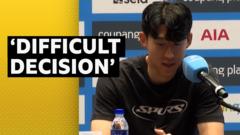Can a Chess Grandmaster Dominate the Esports World Cup?

Magnus Carlsen Triumphs at the Inaugural Esports World Cup Chess Competition
In a thrilling display of skill and strategy, Magnus Carlsen, the reigning world chess champion, has emerged victorious in the inaugural online chess competition at the Esports World Cup (EWC). This highly anticipated event took place in Riyadh, Saudi Arabia, and marked a significant milestone for chess as it entered the realm of competitive gaming. The 34-year-old Norwegian grandmaster's victory not only solidifies his status as a chess legend, but also showcases the growing acceptance of chess within the esports community. Carlsen takes home a substantial prize of $250,000, equivalent to around £188,000, recognizing his exceptional talent and hard work.
The Esports World Cup: A Multi-Discipline Gaming Extravaganza
The Esports World Cup is one of the largest multi-discipline tournaments in the competitive gaming landscape, boasting a total prize pool of approximately $70 million (£50 million). This year's event has seen teams from across the globe compete in 25 popular games, including heavyweights like Call of Duty, League of Legends, and Street Fighter. The inclusion of chess in the tournament was somewhat controversial; however, its organizers argued that chess qualifies as an esport, played by millions worldwide across various age groups.
Over seven weeks, competitors showcased their skills in an array of games, culminating in a grand showdown that included chess as an official discipline. This decision has been celebrated by many in the chess community, marking a new era for the game, especially given that it has been 139 years since the first World Chess Champion was crowned. The EWC has successfully brought chess to a broader audience, merging traditional gameplay with modern entertainment formats.
Chess at the EWC: A Unique Format and Experience
At the Esports World Cup, players participated in an online competition while sitting at their computers on a stage in front of a live audience. Competitors wore heart-rate monitors, providing a glimpse into the psychological pressures faced during high-stakes matches. The event featured large screens displaying the action, big-name sponsors, and live commentary, much like traditional sports broadcasts. This setup enhanced the spectator experience, allowing fans to engage with the competition in real-time.
The chess competition followed a structured format, starting with a group stage where participants battled for top positions. The highest scorers then advanced to the playoffs, culminating in a showdown between the world's best players. Magnus Carlsen ultimately defeated number eight-ranked Alireza Firouzja to claim the championship title, further solidifying his reputation as one of the greatest chess players of all time.
Carlsen's Vision for the Future of Chess
Magnus Carlsen has consistently demonstrated a willingness to embrace innovation within the chess world. His recent victory at the EWC is a testament to his belief that chess can thrive in modern gaming environments. The grandmaster expressed his excitement after lifting the EWC trophy, stating, "It's been an amazing show, unlike anything that I've seen so far." He emphasized the importance of such events for the future of chess, expressing hope that this platform could lead to even larger stages for the game in the future.
Carlsen's return to major chess competitions follows his previous exit from the World Rapid and Blitz Chess Championships in New York. His departure was prompted by the governing body's strict dress code, which prevented him from playing in jeans. This incident highlighted the need for the chess community to adapt to modern standards, which Carlsen successfully advocated for, demonstrating his commitment to both the game and its evolution.
The Impact of Esports on Traditional Sports
The inclusion of chess in the Esports World Cup is part of a broader trend where traditional sports are increasingly intersecting with esports. This convergence has the potential to attract a diverse audience, bridging generational gaps and appealing to younger demographics who gravitate towards digital platforms. As esports continue to capture public interest, traditional sports may benefit from incorporating elements of gaming and online competition.
Chess, in particular, has seen a resurgence in popularity due to online platforms that offer accessibility and a global reach. The COVID-19 pandemic accelerated this trend, leading to a surge in online chess participation. The EWC's chess competition symbolizes a commitment to blending the rich history of the game with contemporary formats that resonate with modern audiences.
What Lies Ahead for Chess in the Esports Era
The future of chess in the esports landscape appears promising. With events like the Esports World Cup paving the way, chess is poised to reach new heights. The potential for increased sponsorship, media coverage, and fan engagement could transform the game into a more mainstream spectacle. As the lines between traditional and digital sports blur, chess enthusiasts can anticipate exciting developments on the horizon.
Moreover, the growing acceptance of chess as an esport opens doors for innovative formats, such as team-based competitions, mixed formats with other games, and community-driven events. These changes could invigorate interest in chess, attracting a new generation of players and fans who may not have previously engaged with the game.
Frequently Asked Questions
What is the Esports World Cup?
The Esports World Cup is a multi-discipline tournament featuring a variety of popular games, with a significant prize pool. It includes competitions across several genres, attracting teams and players from around the world.
How did Magnus Carlsen win the chess competition at the EWC?
Magnus Carlsen won the chess competition by progressing through the group stage and defeating Alireza Firouzja in the playoffs, ultimately securing the championship title.
Why was the inclusion of chess in the Esports World Cup controversial?
Some viewed the inclusion of chess as controversial because it is traditionally considered a board game rather than a video game. However, organizers argued that chess is played by millions and fits the definition of an esport.
What does the future hold for chess as an esport?
The future of chess as an esport is bright, with potential for increased visibility, sponsorship, and innovative competition formats. Events like the EWC highlight the game's adaptability and growing popularity among diverse audiences.
In conclusion, Magnus Carlsen's victory at the Esports World Cup signals a new chapter for chess, intertwining its rich heritage with the dynamic world of competitive gaming. As chess continues to evolve and attract new fans, it raises questions about the future of traditional sports and their role in the gaming landscape. How do you envision the relationship between chess and esports developing in the coming years? #ChessEsports #MagnusCarlsen #FutureOfChess
Published: 2025-08-02 01:56:12 | Category: technology



